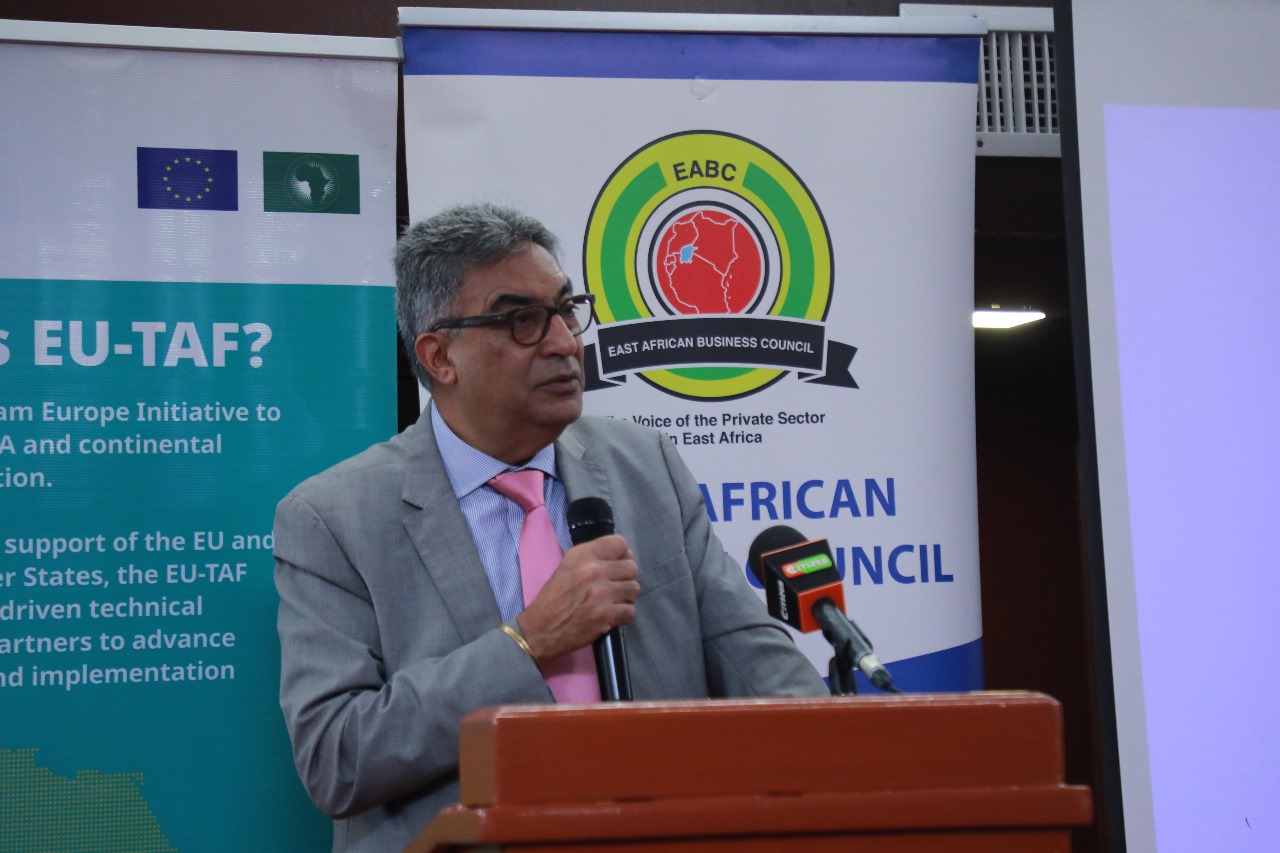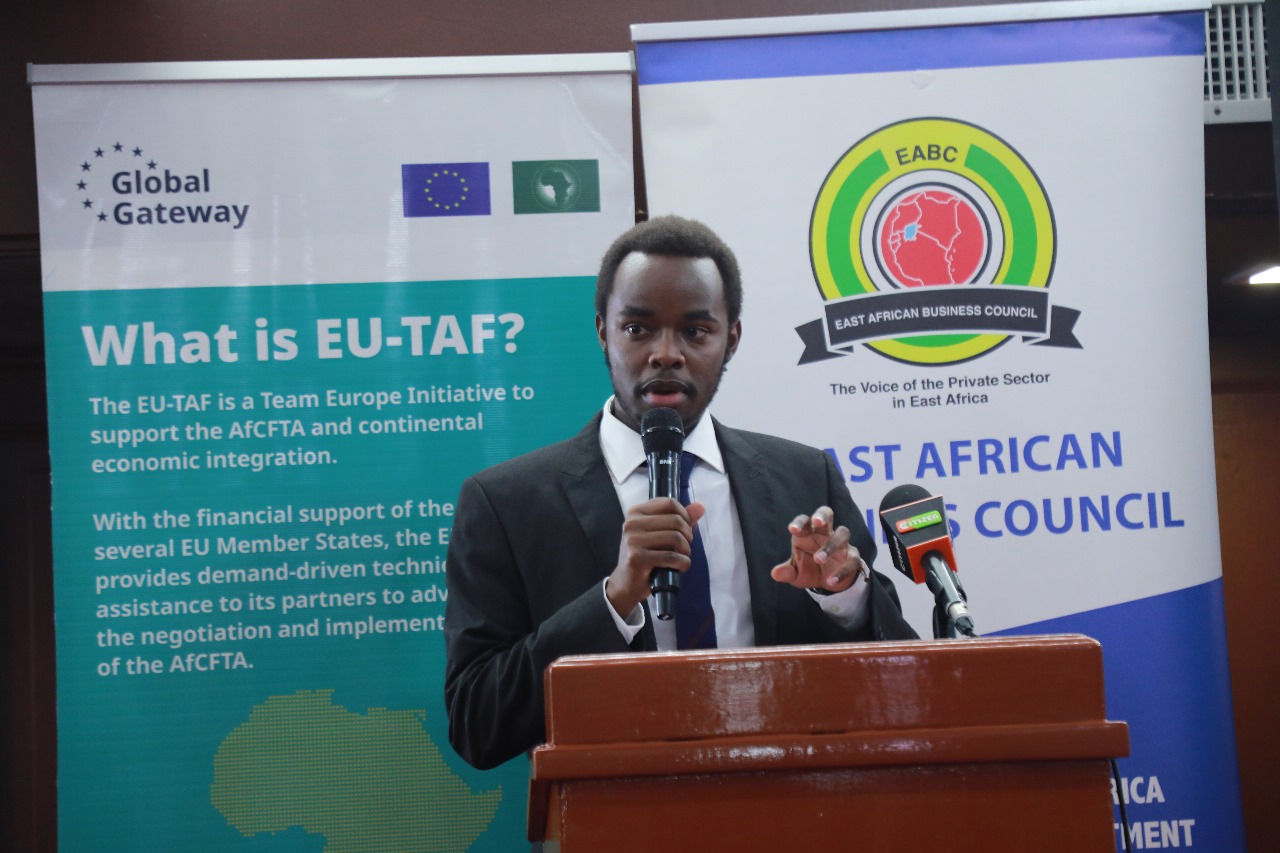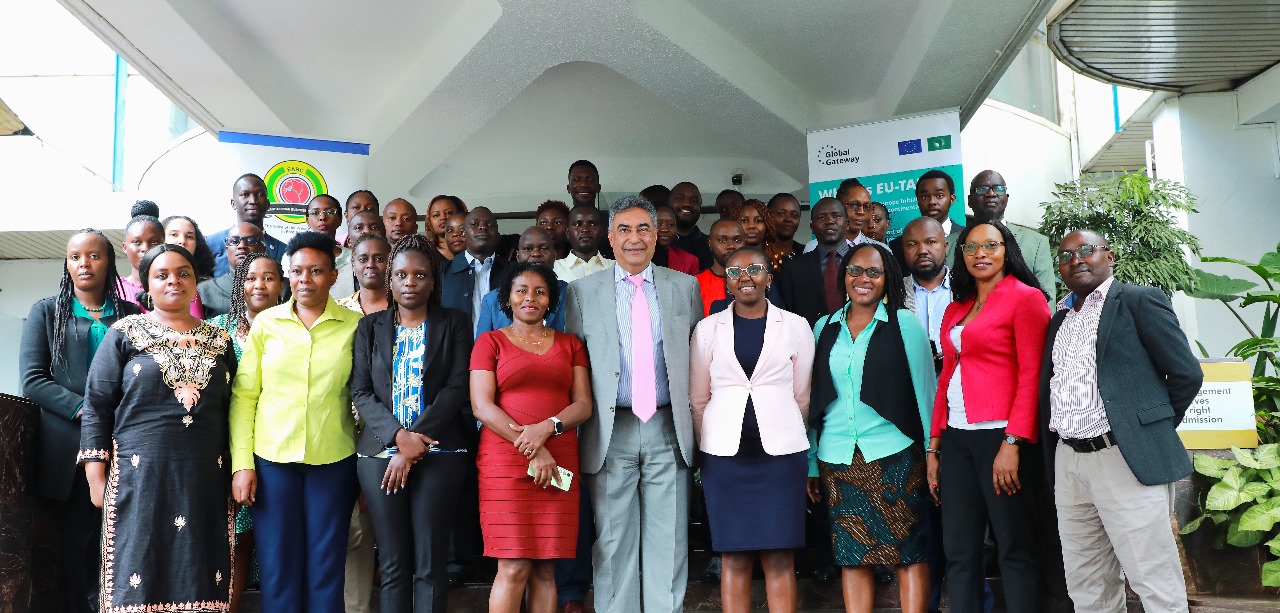Friday, August 30th, Nairobi, Kenya: The East African Business Council (EABC), in collaboration with the EU Technical Assistance Facility (EU-TAF) and GIZ-EAC, launched a Capacity-Building Workshop for SMEs focused on exporting to the AfCFTA market through e-commerce digital platforms.
 In his welcoming remarks, Mr. Jas Bedi, EABC Vice Chairperson and KEPSA Chairperson, expressed appreciation to EABC, EU-TAF, and GIZ for their efforts in equipping SMEs with skills and tools for e-commerce to leverage export opportunities within the AfCFTA market. He highlighted how digitalization has significantly transformed both global and regional trade landscapes. Mr. Bedi pointed out that Africa’s youthful population is a key advantage and underscored that AfCFTA and TFTA offer the chance to lift 30 million Africans out of extreme poverty. He urged that to fully exploit these opportunities, Africans need to innovate and refine their export strategies.
In his welcoming remarks, Mr. Jas Bedi, EABC Vice Chairperson and KEPSA Chairperson, expressed appreciation to EABC, EU-TAF, and GIZ for their efforts in equipping SMEs with skills and tools for e-commerce to leverage export opportunities within the AfCFTA market. He highlighted how digitalization has significantly transformed both global and regional trade landscapes. Mr. Bedi pointed out that Africa’s youthful population is a key advantage and underscored that AfCFTA and TFTA offer the chance to lift 30 million Africans out of extreme poverty. He urged that to fully exploit these opportunities, Africans need to innovate and refine their export strategies.
Additionally, Mr. Bedi emphasized the need for regional collaboration to enhance intra-EAC and continental trade, and to address issues within regional value chains. He also stressed the importance of improving logistics and legal frameworks, including resolving challenges related to the stay of applications, Rules of Origin, and CETs, which can impede regional trade. He concluded by advocating for a shift from importing to focusing more on exporting.
 Mishael Wambua, Trade Policy Advisor, GIZ-Kenya, outlined that AfCFTA offers substantial opportunities for Kenyans and East Africans to expand their export markets, contributing to GDP growth and sustainable development. He noted the transformative impact of digital trade and the necessity for robust legal frameworks and policies to support it. For intra-African trade to flourish, harmonizing policies at the country level is essential, and the private sector must lead this effort. GIZ is committed to supporting a unified African market and advancing related initiatives.
Mishael Wambua, Trade Policy Advisor, GIZ-Kenya, outlined that AfCFTA offers substantial opportunities for Kenyans and East Africans to expand their export markets, contributing to GDP growth and sustainable development. He noted the transformative impact of digital trade and the necessity for robust legal frameworks and policies to support it. For intra-African trade to flourish, harmonizing policies at the country level is essential, and the private sector must lead this effort. GIZ is committed to supporting a unified African market and advancing related initiatives.
 In his opening remarks, Joseah Rotich, Ag. Director of External Trade at the Ministry of Investments, Trade and Industry, emphasized the expanding GDP under AfCFTA and urged private sectors to proactively seize this opportunity. He said the private sector should ensure they have sufficient volumes of products to maintain consistency in supplying the AfCFTA market. Mr. Rotich emphasized the need to integrate and strengthen trade in services alongside goods. He stressed the importance of proactive private sector engagement in the AfCFTA implementation process.
In his opening remarks, Joseah Rotich, Ag. Director of External Trade at the Ministry of Investments, Trade and Industry, emphasized the expanding GDP under AfCFTA and urged private sectors to proactively seize this opportunity. He said the private sector should ensure they have sufficient volumes of products to maintain consistency in supplying the AfCFTA market. Mr. Rotich emphasized the need to integrate and strengthen trade in services alongside goods. He stressed the importance of proactive private sector engagement in the AfCFTA implementation process.
The workshop also included valuable insights from the Kenya Bureau of Standards (KEBS) and the Kenya Revenue Authority (KRA), who elaborated on their roles in facilitating cross-border trade and market access under AfCFTA.





